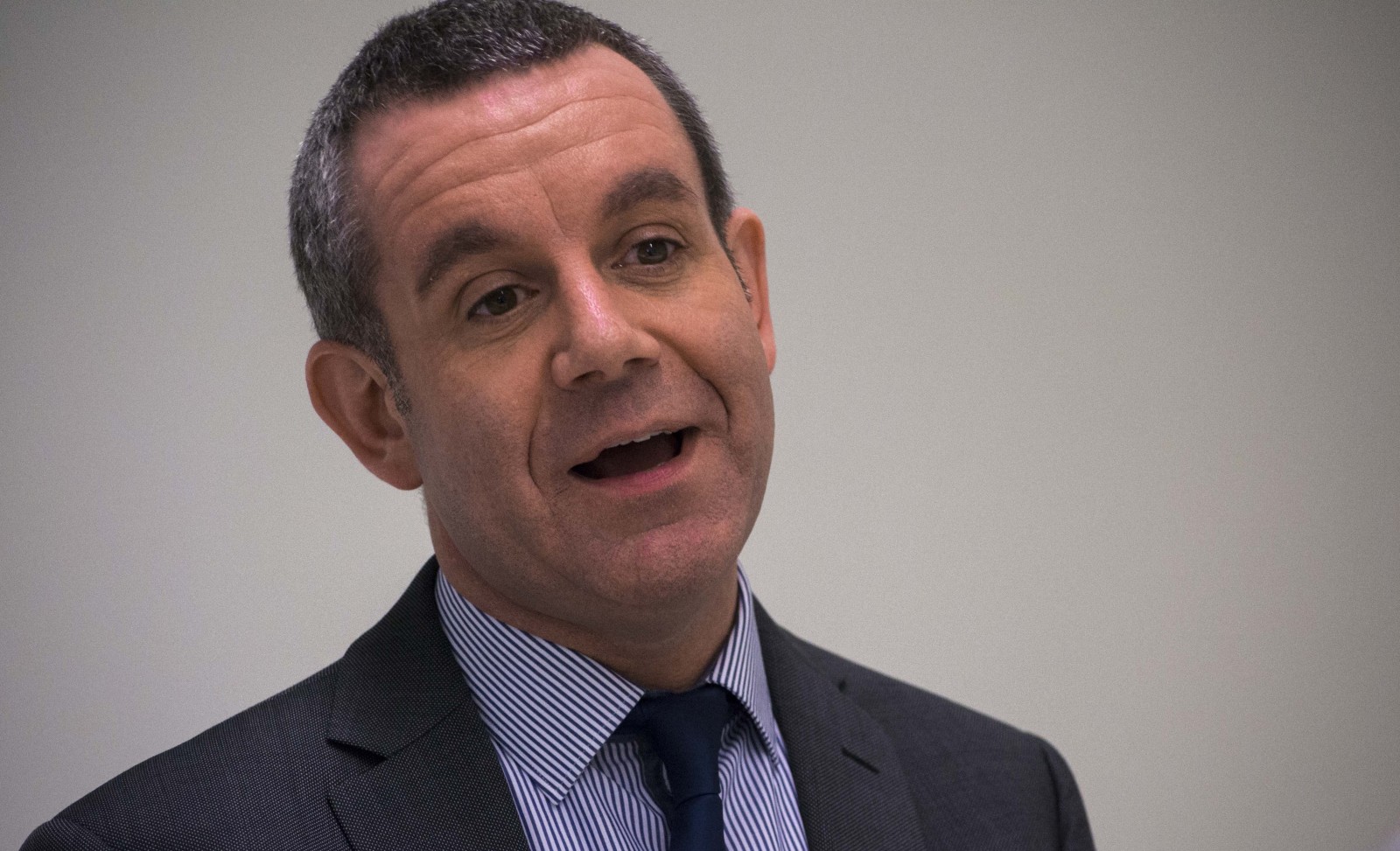Paul Rowe, Director of International Academic & Business Development, at the University of Central Lancashire (UCLAN) visited the USJ School of Communication Nov. 5 to inform the students about the possibility of studying in England.
He invited us to get to know the “International business communitaction” degree program, which is the name of the course that lasts one year in the UK. The program is designed to increase students’ English level and also to develop professionally within that language. Dragón Digital had the chance to interview Paul and therefore to know more about UCLAN and the life there.

What is the main offer that University of central Lancashire has come here to present?
The key program is the BA International Business of Communication. It’s a Bachelor of Arts.
You spoke a lot about the money and the things we can do to afford this year abroad. Do you think most of the people avoid this because they don’t know the methods to save money?
I think when you’re young it’s easy to stay at home and your parents are around, but also nowadays it’s very expensive to study abroad so living and life is more expensive so I think a lot of people find it difficult because of the costs.
Are these courses open to every student or do they have to pass an exam first?
First, the English level. They need a B2 in English or IELTS 6. Or sixty percent in your mark at Universidad San Jorge for example.
Spanish students tend to go on Erasmus quite often, why is this rare in British students?
I think if we’ve grown up in the stats or in the UK we’re very lucky because English is the top language at the moment (although Spanish is a close second) so I think 2 reasons: One is that English people have got lazy, and second reason is they don’t think they don’t have to go abroad to learn a language. I can think it’s the British government’s fault. About ten years ago the British government stopped making languages compulsory at school so many children now finish junior highschool (secondary school in the UK) and they’ve never studied a language. So, when they get to the University they think they cant speak French, Spanish or German. So the number of people studying languages at the university is much smaller.
Do you think that British students, as English is their main language, think they don’t need to go on Erasmus because with English you can communicate with everyone in the world? If so, is this a problem?
I think one of the problems is they don’t know the opportunities. We’re now having an Erasmus teams that promotes this but many times the students don’t know the possibilities and also they see the signs but they don’t go to the meetings. So they’re not sure of what it is and they feel they don’t need the language. And sometimes another problem is that they work, they have a job and they are afraid of losing it if they go abroad and if they lose the job they can’t afford their university studies.
Some years ago universities in Britain didn’t have relationships with other universities in Europe. What has changed to start doing this?
In general I think England is a friendly country. I think maybe when the number of universities in the UK increased there’s more competition so one of the initial drivers is that they need to work internationally to get students to go to the UK, we need more students so that’s one of the reasons honestly speaking. But also I think as the UK has progressed I think we’ve become more interested in Europe. Lot’s of people travel to Europe on holiday nowadays, which is something that didn’t happen like 60 years ago. Now people in UK travel on Holiday to France, Spain, Germany so they know a lot more about this countries and they want to study there as well.
What would you tell to a student that couldn’t come to your presentation here today at USJ?
I think nowadays because of the working world you need to be able to work internationally as well even if you stay in your own country. The opportunity to go abroad for one year, it gives you a huge amount of confidence in what you can do so you don’t rely on your parents and you learn to look after yourself. You can improve your English ability and you get a chance to make international friends for the future. It affects the rest of your life.



















Comentar